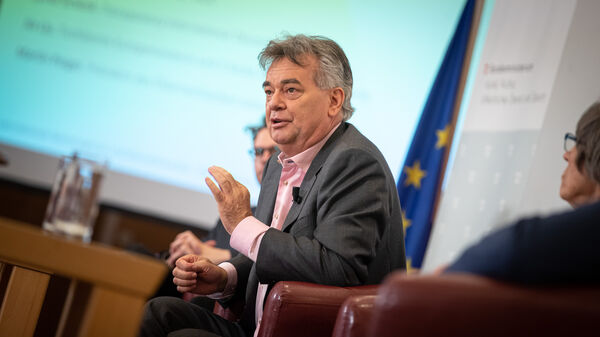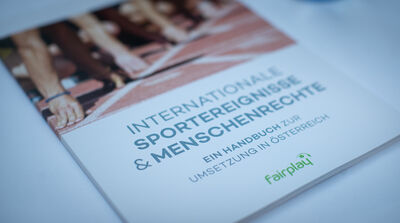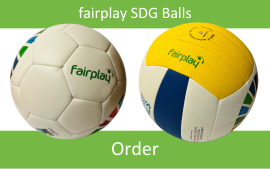Handbook: International Sporting Events and Human Rights
(C) Daniel Trippolt
On July 5 2021, the Federal Ministry for Arts, Culture, Public Services and Sport presented a manual on the protection and respect of human rights at international sporting events in Austria. The manual was written and composed by the fairplay Initiative at the Vienna Institute for International Dialogue and Cooperation (VIDC).
Sport is a strong, global driver and can support the realization of human rights by establishing social and international contacts. On the other hand, the downside of sport also creates the risk of ignoring or even violating human rights.
On Monday, July 5th at the Diplomatic Academy in Vienna, Austrian Minister of Sport Werner Kogler emphasized the European dimension, but also the national responsibility of sport when it comes to human rights: “The timing of the publication of the manual could not be better. The EURO 2020 in particular showed that the issue of sport and human rights is very topical. And I'm sure: the topic has come to stay. The debates generated a lot of positive reaction, including among sponsors, which was very different a few years ago. A rethink has also begun among the international sports associations that are responsible for award decisions."
Martin Poiger, President of the Austrian Judo Association and board member of the European Judo Association, emphasizes that associations are not per violating human rights. However, the award of major sporting events is much about license fees, and money and budget play a major role. Nevertheless: “In judo in particular, we rely on values such as respect and mutual respect. No association, no sport should tire of fighting for human rights."
The manual is intended to be a guide for all future domestic organizers of sporting events, including the federal government, federal states, municipalities, cities and business partners, in the step-by-step planning of their own events – from the conception to the final evaluation phase.
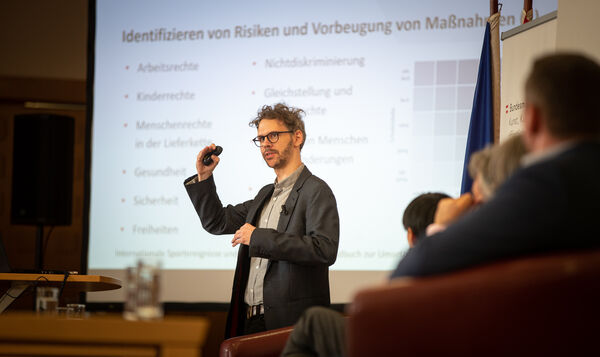
(C) Daniel Trippolt
Martin Kainz from the fairplay initiative at the Vienna Institute for International Dialogue and Cooperation (VIDC), main author of the manual, emphasizes the relevance for Austria: “Human rights are already deeply anchored in our laws. Nevertheless, human rights are also endangered at sporting events – for example when it comes to employing cleaning staff, glass ceilings for women when it comes to management positions or human rights in the supply chain. Depending on the very sport, there are different things to consider and implement."
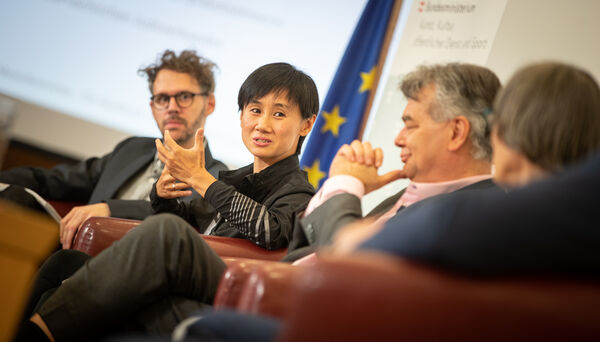
(C) Daniel Trippolt
Liu Jia, who is taking part at Olympic Games in Tokyo for the sixth time, emphasizes the role model function that Austrian sport can thereby take on. “I was born in China and there are a lot of things that can still be improved. And as a citizen, not just as an athlete, you can make a contribution, for example when you go to major sporting events and meet politicians and other associations. I do think that we have a role model function."
In fact, it is a matter of not only respecting human rights at sporting events in one's own country, but also of anchoring human rights in one's own association structures and positively influencing international awarding processes, says Sylvia Schenk, human rights expert at Transparency International Germany and advisor to the German Football Association’s recently published human rights strategy. “Ten years ago, the UN adopted the Guiding Principles on Business and Human Rights. And what applies to the economy also applies to sport. Sports associations must live up to their human rights responsibility and apply these principles to their own association."
The manual is based precisely on these guiding principles. But what is the manual supposed to have achieved in ten years, Werner Kogler was asked. His response: “That Austrian associations are committed to human rights and also cast their vote in international award decisions. The manual is also an important guide for associations in Austria that organize sporting events. Here, too, the issue of human rights must be given greater consideration, for example when it comes to international supply chains. "
The handbook is available in German. Click here for the online version of the manual.
For a copy of the printed version please send a request to fairplay [AT] vidc [DOT] org.
Support in the creation of the manual came from the associations of the Austrian Working Group Sport and Human Rights, as well as from national and international experts and institutions, in alphabetical order:
Austrian Chamber of Labor, Austrian Standards International, Federal Procurement GmbH (BBG), Federal Sport GmbH, BMKÖS (Ministry), Institute for Human Rights and Business (IHRB) and the Center for Sport and Human Rights (CSHR), Austrian Ombud for Equal Treatment, Global Compact Network Austria, International Fistball Federation (IFA), Ludwig Boltzmann Institute for Human Rights, Austrian Football Association (ÖFB), Austrian National Contact Point for the OECD Guidelines (ÖNKP), Südwind, Transparency International Germany, Federal Environment Agency, UNICEF UK, Austrian Ombudsman Board (AOB).


